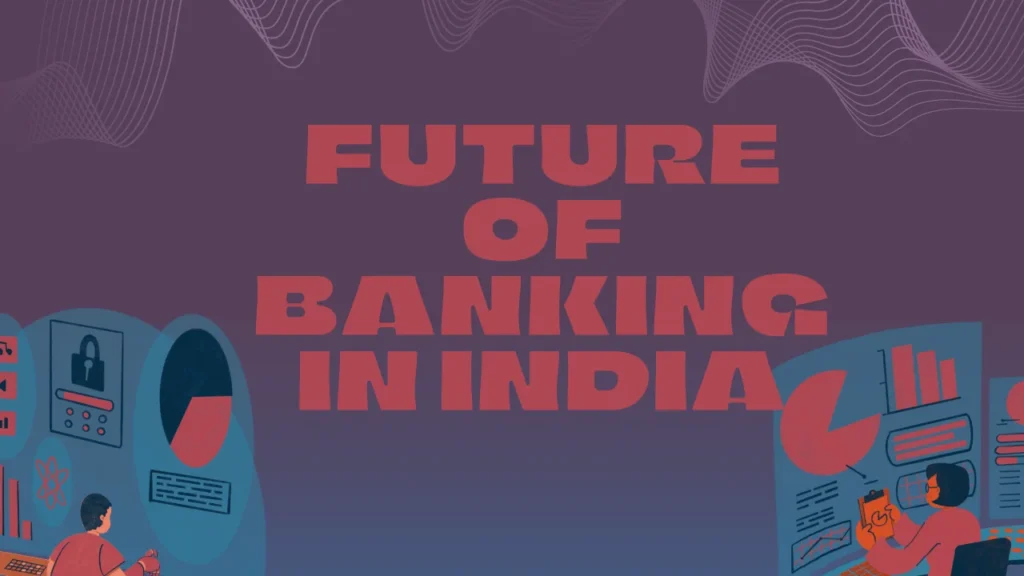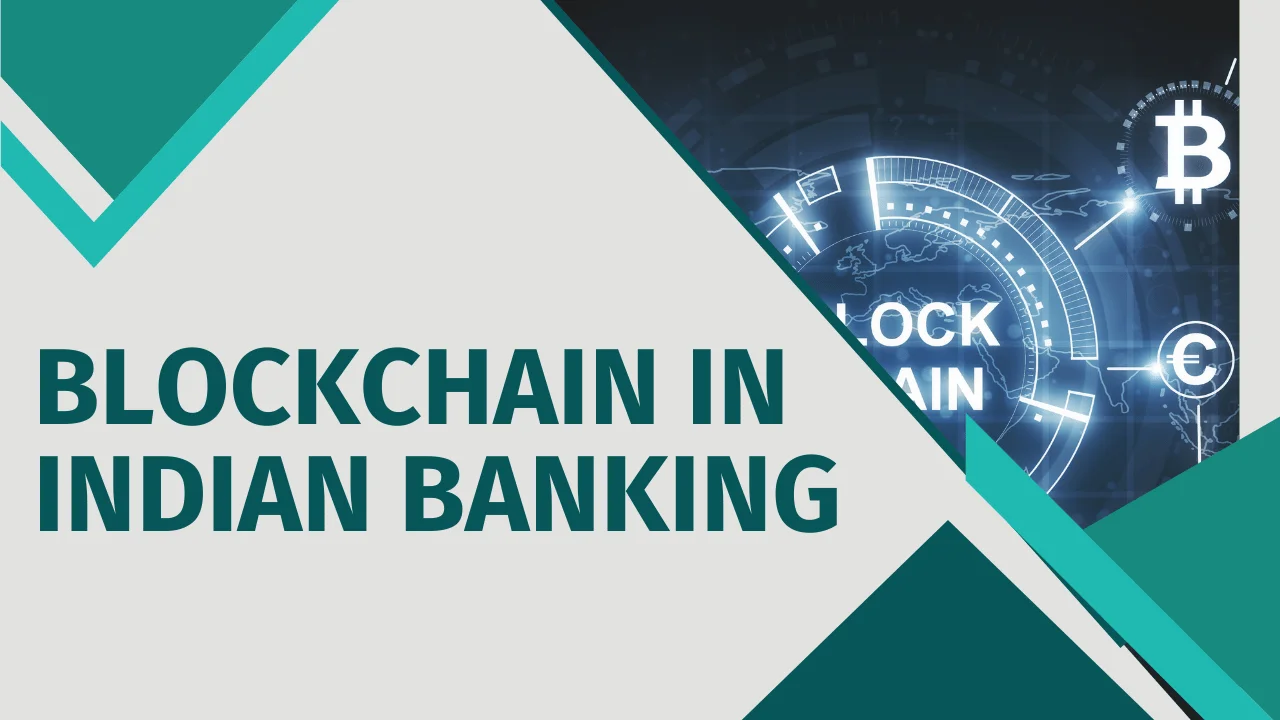The adoption of blockchain technology is setting the stage for a digital revolution in India’s banking industry. By introducing new standards for safety, openness, and efficiency, this technological advancement has the potential to revolutionize the way banks function. In Indian banking, blockchain is about more than just embracing new technology; it’s about revolutionizing the financial landscape to meet the nation’s economic needs and the aspirations of its people.
An innovative solution for safe financial transactions and information administration is offered by blockchain technology, which features a distributed and unchangeable record. Indian banks are jumping on this bandwagon because it promises to fix their long-standing problems with fraud, inefficiency, and secrecy. With the introduction of Blockchain in Indian Banking, a new era has begun in Indian banking, one in which customer trust is greatly increased, operations are simplified, and financial operations are more secure.
Empowering Indian Banks with Blockchain

Everyone from banks and regulators to regular people in India stands to benefit from blockchain technology’s incorporation into the country’s banking system. Because of its superior security features and speed in processing transactions, blockchain is being considered by banks as a potential tool. Simultaneously, customers can anticipate improved security for their money transactions and quicker service overall. This industry’s dedication to embracing innovative technology for the benefit of its stakeholders and customers is demonstrated by the widespread use of blockchain technology in banking.
Moves Towards Modernization and Security

Infrastructure and Collaboration
The establishment of the Indian Banks’ Blockchain Infrastructure Company (IBBIC) is a critically important step towards utilizing blockchain technology in Indian banking. This group exemplifies the cooperative spirit present in the banking industry since it comprises fifteen large banks. Among these are SBI, HDFC, and ICICI, all of which are formidable competitors. In an effort to improve efficiency, speed transactions, and reduce fraud, the IBBIC is concentrating on using blockchain to enhance the processing of Letters of Credit (LCs). The banking industry’s commitment to blockchain technology’s ability to modernize infrastructure and improve operational security is highlighted by this joint effort.
RBI’s Blockchain Endeavors
Investigating blockchain technology as a potential tool for trade financing is just one example of the Reserve Bank of India’s (RBI) forward-thinking approach to incorporating cutting-edge tech into its banking processes. The Reserve Bank of India (RBI) is targeting a major cause of financial scams by emphasising the use of digital LCs in an effort to prevent amendments and forgeries. In contrast to its position on cryptocurrencies, the Reserve Bank of India (RBI) is taking a cautiously optimistic approach to the wider adoption of blockchain technology through this initiative, which aims to improve banking security and efficiency.
Efficiency and Reducing Fraud
The sector stands to benefit greatly from blockchain technology due to its ability to reduce fraud and simplify banking processes. Reduced operational load and increased customer satisfaction are two outcomes of blockchain technology’s ability to facilitate faster and more secure transactions. Additional benefits include a healthier banking system and significant cost savings due to its ability to reduce instances of fraud, particularly in the areas of loan processing and credit issuance.
Digital Letters of Credit
As an example of the innovative strides being made, digital Letters of Credit (LCs) using blockchain technology have been adopted. This method brings an unprecedented degree of reliability and security to the transaction process while simultaneously speeding it up. Hybrid LCs, which combine the efficiency and security of modern technology with the dependability of traditional banking instruments, represent the sector’s transition towards digitization.
Future of Banking in India

Transparency and Security
Blockchain technology is going to change the way banks in India operate because of its inherent security features, immutability, and transparency. Blockchain technology promotes a trustworthy and efficient banking environment by making transactions faster, more transparent, and impossible to tamper with.
SMEs with Blockchain Solutions
Blockchain technology has a lot of potential benefits for small and medium-sized businesses, which are generally the engine that drives India’s economy. One way blockchain technology can help small and medium-sized enterprises (SMEs) is by making transactions more secure and efficient. This will make it easier for SMEs to access credit and provide them more reliable trade financing options.
Cross-Border Payments
Blockchain technology has the potential to revolutionize international trade and money transfers by making cross-border payments more efficient. Financing operations can run more smoothly and reliably with the help of blockchain technology, which can increase Indian companies’ global competitiveness by decreasing transaction costs and times.
Blockchain as a Catalyst
The adoption of blockchain technology in Indian banking is symbolic of a larger trend toward digital transformation, rather than merely a technical one. A more secure and efficient banking ecosystem that is better suited to the digital age is the goal of this transition, which will also improve operational resilience and the customer experience as a whole.
Securing Transactions with Blockchain

Preventing Loan Fraud
One of the most widespread problems in the banking industry is loan fraud, which blockchain technology’s immutable ledger technology greatly helps to address. Banks can greatly lessen the likelihood of fraudulent activities by safely storing customer data and transaction records. By taking this precaution, the bank is able to keep its assets safe and its customers’ money safe as well.
Digitization of Banking Processes
There has been tremendous progress towards the digitization of banking processes with the transition to blockchain-based systems. Banks can streamline their operations to new heights of efficiency by using blockchain technology to automate and secure transactions. The digitization initiative improves the banking experience for customers by making services faster and more reliable while also streamlining internal processes.
Blockchain Solutions for SME Banking
The specific problems that small and medium-sized enterprises (SMEs) encounter when trying to get financial services can be solved with the help of blockchain technology. Credit approvals and trade financing can be made easier with blockchain’s secure and transparent platform, giving small and medium-sized enterprises (SMEs) the financial tools they need to grow.
Improving Banking Transparency
The use of blockchain technology greatly improves the openness of financial transactions. All parties involved in the bank’s operations can see the big picture thanks to the decentralized ledger that records every single transaction. Banks must be completely transparent with their customers, investors, and regulatory agencies if they want to earn their trust.
Future of Cross-Border Payments
International money transfers will soon be easier and faster than ever before thanks to blockchain technology. Blockchain technology has the potential to revolutionize international transactions by cutting out middlemen and transaction fees, opening up new avenues for investment and trade around the world.
For New Startup View: Indian Blockchain Startups: Updated Reviews
Conclusion
The Indian banking sector has begun a new age of efficiency, security, and trust with the adoption of blockchain technology. The potential for a dramatic shift in the banking industry is growing as more and more banks and other financial organizations investigate and pursue blockchain technology. The sector’s dedication to utilizing cutting-edge technology to improve its operations and the economy as a whole is evident in its journey towards blockchain integration. Blockchain technology has the potential to revolutionize the Blockchain in Indian Banking by making transactions more open, secure, and user-friendly. This could lead to improvements in financial services globally.

Brandy Stewart, an enchanting wordsmith and seasoned blogger, weaves compelling narratives that transport readers to uncharted territories. Infused with perceptive viewpoints and dynamic storytelling, Doris exhibits a command of language that enthralls both hearts and minds, leaving a lasting mark on the literary panorama.

